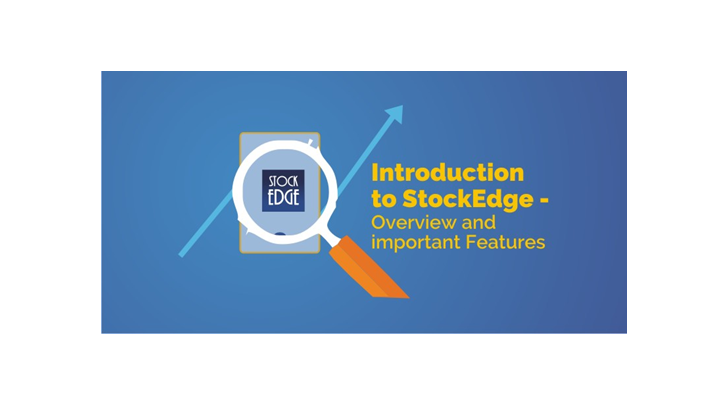Did you know that 61 percent of people find investing scary or intimidating? This number is even higher when it comes to millennials.
Investing in the stock market isn’t just something super clever people do. You don’t have to be really wealthy to start investing in stocks.
But you do need to know what you’re doing before you get started. That’s why we’ve put together this beginner’s guide to investing. Get started with our guide to investing in 8 simple steps.
1. What is Investing?
Instead of just putting your money into your bank account and allowing it to earn interest, an investment is a risk. You’re not guaranteed any returns on your investment.
Therefore, you have the chance of making a lot of money if you play your cards right. But you also could make a mistake resulting in less money than with which you started. You can even lose it all.
There are multiple different kinds of investments you can make. These include:
- Shares
- Funds
- Bonds
- Property (check out Turner Investment Corporation for a place to start)
- Whiskey
- Land
- Antiques
This includes everything from the conventional shares and funds to the less obvious whiskey and antiques. It’s basically anything that you believe will increase in value over time.
But for our purposes, it’s best to focus on the stock market. This involves buying shares in one or more companies to make a profit over time.
When most people think of stock markets they imagine lots of young and flashy stock brokers shouting “buy!” and “sell!”. But the truth is that it’s much more boring than this.
It’s actually about selecting a number of shares or funds, tracking how they’re doing and pulling out when you think it’s a good time.
2. Stock Markets and How They Work
A stock market is just a place where people come together to buy and sell shares in companies. Each share is listed on what’s called an exchange.
But how do shares come about? Companies provide investors the chance to support what they’re doing with cash. This allows the company the chance to grow and the investor to make money on the back of this success.
When you invest in a company, you become a shareholder. You can trade this share in the company with anyone else who wishes to purchase it from you.
Even though the original price of each share is determined by the company itself. From thereon, the price of each share is influenced by a number of factors from the strength of the overall economy to the financial health of the company.
Depending on these factors, the price of the company will rise and fall in the stock market.
3. How Much Can I Make by Investing?
This is the real reason why people start investing in stocks. They want to make money. But there’s no simple answer to the question of how much you can make.
But it’s worth pointing out that in the current economic climate, savings rates are actually at an all-time low. This means that many people are searching for alternative means of making money.
How much you can make by investing is also contingent on how bigger risk you can afford to take. The more you’re willing to risk, the higher the potential of your returns.
4. How Much to Invest?
So many people spend many years of their lives thinking that when they finally have some spare cash, they’ll invest it. But this is actually the wrong way to look at investments. You don’t need piles of cash to start investing.
By investing a little amount regularly, you can build up your returns over time. It’s important not to invest everything you’ve got in a single venture. “Not to put too many eggs in one basket” is excellent advice for any wanna-be investor. Together with traditional ways of investing, you should also look to put some money in alternative investments.
You have to be able to afford to lose the money you’re thinking of investing. If there’s a stock market crash you could lose everything you’ve invested overnight.
You should also make sure you can afford to put money into a share over a minimum of 5 years. You need to be able to plow through the bumps along the way to make anything in the long run.
5. What’s a Share?
Let’s investigate a little further what a share actually is.
It’s a unit of value of a company. If a company is valued at $10 million and there are 1000 shares, each share would be worth $10,000. But the shares of the company can rise or fall according to the overall value of the company.
People invest in a company because they believe the company will be successful in the future. By buying shares you get the chance to share in the success or failure of the company.
Along with the profit you make when the shares increase in value, as a shareholder, you usually receive dividends too. This is a payment to you by the company from the profit generated by the company.
6. What’s a Fund?
If you want to buy shares, you can either purchase stocks or funds.
Instead of purchasing the shares from the company, you pass your money to a fund manager. The fund managers bring together the money of a number of investors and purchase shares on the stock market for you.
7. How to Start Investing?
There are a number of different ways to purchase shares and funds. But most people use what’s known as a platform to make purchases.
You have to select which platform you want to use to make your investments. After you’ve done this, you can select which investments you want to make.
Confused? Think of it as buying milk from the store.
You have to choose which store (your platform) you want to purchase the milk. And then you need to choose which milk (your investment). You’ll also be charged for your shopping bag (user fees).
8. Should I Invest?
Of course, it’s always good to evaluate why you’re investing in a particular company. Ask yourself – is investing right for you?
History shows us that people who invest in shares over savings accounts receive greater returns. But this doesn’t necessarily mean that investing is for everyone.
Guide to Investing:
Investing can often seem confusing and scary to the uninitiated. But the truth is it’s much simpler than it appears.
By following our start guide to investing, you can start making informed decisions about what you want to do with your spare cash.
For more blog posts on financial issues, check out our blog.
Read Also:






















